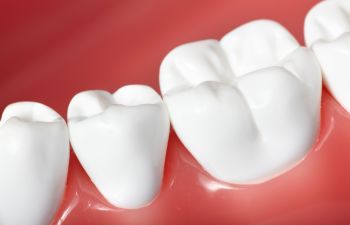
Gum disease is one of the most common oral health conditions, and it is the leading cause of tooth loss in the United States. It is not surprising, therefore, that patients may face both gum disease and tooth replacement at the same time. The question is – can you replace your missing teeth with dental implants if you have existing periodontal disease?
Understanding Gum Disease
To help you determine why dental implants may be in question if you have gum disease, it is important to fully understand this oral health condition. Gum disease occurs in stages. While early stages can be easily reversed with better hygiene or a deep cleaning from your dentist, more advanced stages can lead to the destruction of the gums and bone that support your teeth. This is why untreated gum disease is associated with eventual tooth loss. Unfortunately, after a certain point, gum disease becomes nearly impossible to reverse.
Types of Gum Disease
Here’s a look at the two primary stages of gum disease:
Gingivitis – the first stage of gum disease marked by gums that are irritated. They often bleed and may swell easily. With treatment, gingivitis can be successfully reversed.
Periodontitis – at this stage of gum disease, the gums begin to pull away from the teeth and bacteria fills the deep pockets that are created. Bacteria, along with tartar buildup, will further destroy the gums and the roots of teeth. Because you can’t grow more gums or more teeth, the damage done by periodontitis is treatable, but not reversible.
Treating Gum Disease for Dental Implants
Dental implants rely on a healthy mouth. The implants act just like your tooth root when they are surgically inserted into your jaw bone. If you lack bone or have active periodontal disease that destroys your gums and bone, you will sabotage your implant investment and be at risk for implant failure. However, that doesn’t mean that you can’t have dental implants at all. You will first have to manage or control your periodontal disease and possibly consider additional procedures to qualify yourself for implant dentistry, including:
- Bone graft to rebuild lost bone structure
- Gum graft to reverse receding gums and support an implant
- Specialized dental implants that require less bone structure
An Implant Dentist Who Treats Periodontal Disease
Gum disease is an infection that needs attention, regardless if you are planning on getting dental implants. Untreated gum disease not only leads to tooth loss, but it can have a serious impact on your overall health in terms of heart disease, diabetes, premature birth and more. If you have gum disease or have recently lost teeth due to gum disease, contact Dr. Wayne Suway to learn your options!
Posted on behalf of
1820 The Exchange SE Suite 600
Atlanta, GA 30339
Phone: (770) 953-1752
Email: info@doctorwaynesuway.com
Monday - Thursday 9:00 a.m. – 6:00 p.m.








